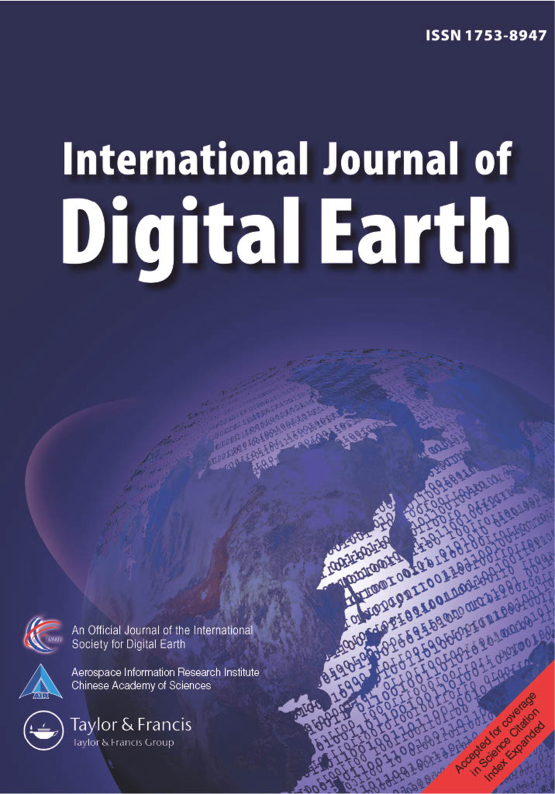Submit a Manuscript to the Journal
International Journal of Digital Earth
For an Article Collection on
Smart Data Technologies in Transport Planning: Prospects and Challenges
Manuscript deadline
30 September 2024


Article collection guest advisor(s)
Professor Nadia Giuffrida,
Polytechnic University of Bari, Italy
[email protected]
Dr Martina Fazio,
University of Catania, Italy
[email protected]
Smart Data Technologies in Transport Planning: Prospects and Challenges
The high rate of urbanization and the ever-increasing private transport modal share require multiple efforts by planners and decision-makers in order to correctly identify interventions to improve the sustainability of transport systems.
Digitalization can help in finding new solutions and bringing greater efficiency: thanks to the use of innovative data it is possible to develop advanced models and tools able to provide support to the already consolidated theoretical models. Smart data technologies, such as the Internet of Things (IoT), artificial intelligence, and data analytics, have the potential to transform the way we manage and operate road transport systems. Spatial data coming from IoT sensors, GPS radars, social networks, and smartphones can provide real-time data on traffic flow, road conditions, and air quality, allowing for more efficient and environmentally-friendly planning. Moreover, analytics can help to identify patterns and trends in transport demand, enabling more effective services and facilitating improvements in traditional modelling techniques.
In this context, it is useful to underline the important role and effectiveness of spatial analysis, network analysis and machine learning, providing a detailed quality of analysis and user-friendly data visualization. However, the use of smart data technologies in transport science also poses significant challenges. A major example is related to the need to ensure data privacy and security, in order to avoid the leak of sensitive information. Another challenge is the need to address the digital divide, since smart data require access to high-speed internet and digital infrastructure, which may not be available in all areas, creating inequalities in access to transport services. Furthermore, it is necessary to verify that the data are representative of all social categories of users, in order for transport systems to be designed to serve the needs of all members of society, regardless their gender, age and including people with disabilities, low-income households, and marginalized communities.
Based on this premise, the aim of this Article Collection is to gather original works exploring the opportunities and challenges associated with the use of emerging smart spatial data in sustainable transport planning and mobility phenomena.
We encourage authors to submit contributions where the role and contribution of spatial analysis in exploiting the potential of innovative data is the key aspect.
This may include, in a non-exclusive list of potential topics, contributions on:
- Spatial data-driven techniques to analyse mobility patterns;
- Traffic forecasting techniques;
- Spatial data mining of transport data;
- Demand forecasting;
- O-D matrix estimation;
- Smart data and Transport Equity
All manuscripts submitted to this Article Collection will undergo a full peer-review; the Guest Advisors for this collection will not be handling manuscripts. Please review the journal scope and author submission instructions prior to submitting a manuscript.
The deadline for submitting manuscripts is 30 September 2024
Please contact Alex Johnson at [email protected] with any queries regarding this Article Collection.
Guest Advisor biographies:
Nadia Giuffrida is Assistant Professor at Polytechnic University of Bari (Italy), a former post-doc researcher at the University College Dublin, working on smart urban freight deliveries, and also a former post-doc researcher at the University of Catania (Italy), working on spatial management of seaports. She has a PhD in evaluation and mitigation of urban and territorial risks, with a thesis on a PPGIS-based framework to support the multicriteria evaluation of transport scenarios at the University of Catania. She is an expert in sustainable mobility and spatial analysis in transport planning.
Martina Fazio has a PhD in complex systems for physical, socio-economic and life sciences with a thesis on the use and integration of smart data and innovative transport models in transport planning at the University of Catania. She is an expert on data analysis and spatial analysis in transport planning.
Benefits of publishing open access within Taylor & Francis
Global marketing and publicity, ensuring your research reaches the people you want it to.
Article Collections bring together the latest research on hot topics from influential researchers across the globe.
Rigorous peer review for every open access article.
Rapid online publication allowing you to share your work quickly.
Looking to Publish your Research?
Find out how to publish your research open access with Taylor & Francis Group.
Choose open accessSubmission Instructions
We encourage authors to submit contributions where the role and contribution of spatial analysis in exploiting the potential of innovative data is the key aspect.
This may include, in a non-exclusive list of potential topics, contributions on:
- Spatial data-driven techniques to analyse mobility patterns;
- Traffic forecasting techniques;
- Spatial data mining of transport data;
- Demand forecasting;
- O-D matrix estimation;
- Smart data and Transport Equity
All manuscripts submitted to this Article Collection will undergo desk assessment and peer-review as part of our standard editorial process. Guest Advisors for this collection will not be involved in peer-reviewing manuscripts unless they are an existing member of the Editorial Board. Please review the journal Aims and Scope and author submission instructions prior to submitting a manuscript.